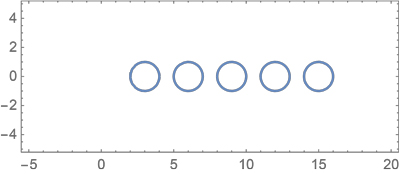For each integer $n$ I am looking for a real-valued polynomial in two variables, $A_n(x,y)$, such that $A_n(x,y) = 0$ defines a curve with precisely $n$ closed components in the plane $\mathbb{R}^2$. Could someone point me in the direction of a theorem or result that might partially/fully solve this problem?
I should point out that the curves must not be concentric, i.e. one should not contain another in its interior.

